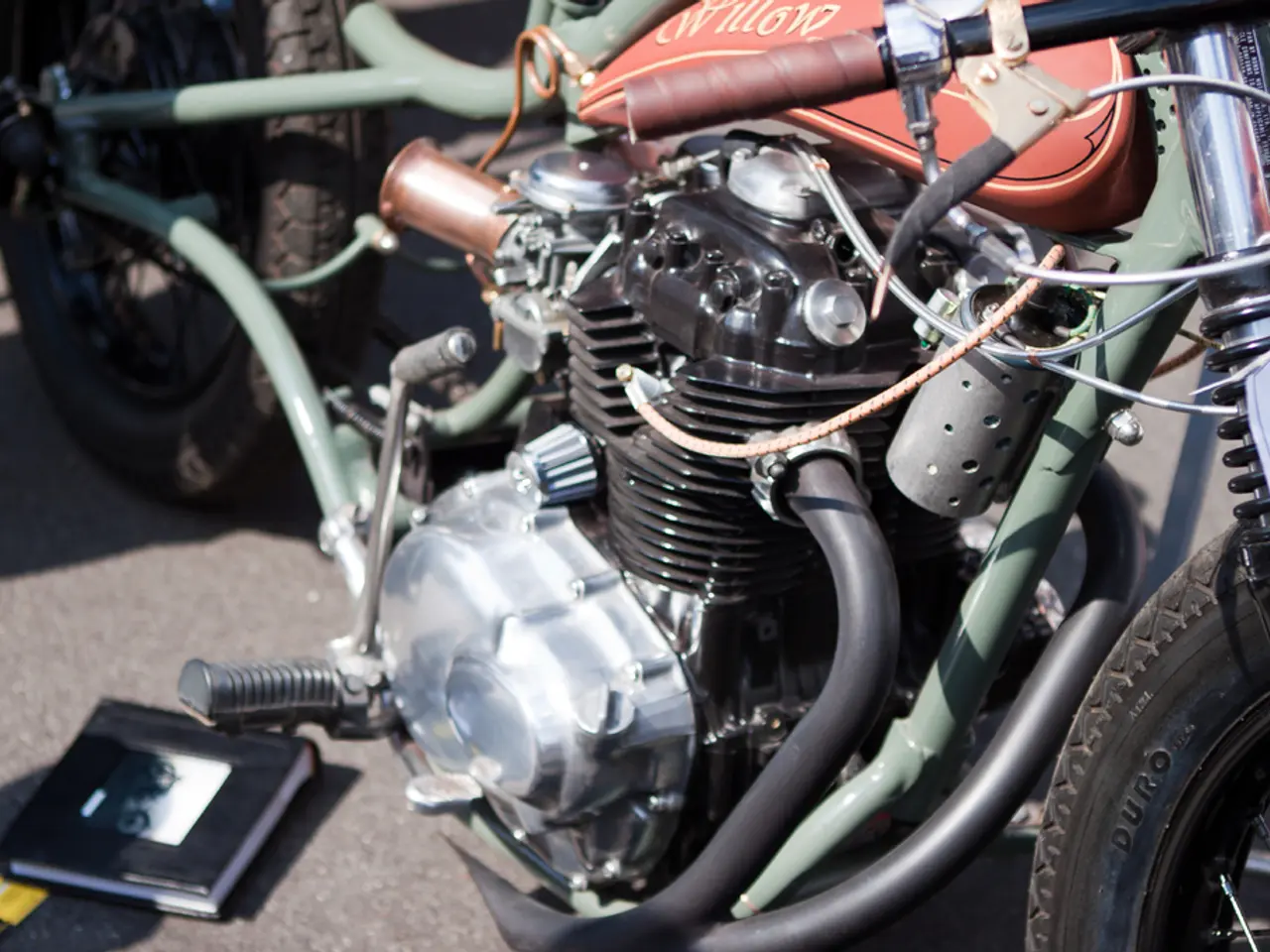The Operations and Structure of the Hells Angels Motorcycle Gang
The Hells Angels Motorcycle Club (HAMC) is a notorious global organization with a long history of violent conflicts with rival biker gangs. These conflicts, often rooted in drug trafficking, territorial control, and criminal enterprises, have contributed to numerous violent crimes worldwide.
One of the most infamous conflicts took place during the Quebec Biker War in Canada, which lasted for eight years from 1994 to 2002. The Hells Angels were engaged in a deadly war with the Rock Machine, resulting in over 150 deaths, including innocent bystanders. This violent conflict involved brutal acts such as murders and assassination attempts, under the leadership of Maurice "Mom" Boucher, who was eventually convicted for multiple murders.
The Cleveland chapter of the Hells Angels was also involved in violent turf wars in the 1960s and 1970s. Notable among these was a deadly confrontation in 1968 with the God's Children gang, which resulted in multiple deaths. The decade that followed was marked by bombings, murders, and organized crime connected to biker gang rivalries, involving collaboration and conflict with mob and union interests.
The Hells Angels' expansion beyond North America has also escalated conflicts with local outlaw motorcycle clubs. Since its founding in 1948 in California, the club has expanded internationally, establishing chapters worldwide and merging with smaller clubs. For example, mergers with Hell's Henchmen MC in the US and Rebels MC in Sweden have increased their presence and possible rivalries in those regions.
The club's violent activities have attracted significant law enforcement attention and legislative responses, especially in countries like Canada where they have been declared criminal organizations. The Hells Angels' cultural identity, tied to the 1960s counterculture, complicates public perception of their violent and criminal activities.
Notable figures associated with the Hells Angels include Ralph "Sonny" Barger, a key figure in the club's history. The club also maintains a prominent presence in popular culture, with numerous films and music artists expressing an affinity for the club.
The Hells Angels' influence extends beyond their violent activities, with over 100 chapters in 29 countries. Their first European beachhead was established in London in 1969, due to an invitation by George Harrison of The Beatles. News reports from various countries often relate tales of violence and criminality involving the Hells Angels.
For more information about the Hells Angels Motorcycle Club, we recommend visiting their official website. You may also find our articles on Top 5 Motorcycle Videos, Motorcycle Quiz, How Motorcycles Work, How Street Gangs Work, How the Sturgis Motorcycle Rally Works, Harley-Davidson Motorcycles, and Classic Motorcycles informative and engaging.
[1] Marsden, William, and Julius Sher. Angels of Death: Inside the Bikers' Empire of Crime. Thomas Dunne Books, 2006. [2] Dulaney, William L. "A Brief History of 'Outlaw' Motorcycle Clubs." International Journal of Motorcycle Studies, vol. 3, no. 1, 2008, pp. 1-18. [3] Cox, Diana. "Under watchful eye, bikers aid charity." Las Vegas Sun, 30 Sept. 2007. [4] Drewery, George. "Skulls, Wings & Outlaws -- Motorcycle Club Insignia & Cultural Identity." University of Newcastle - School of Language and Media, 2013. [5] Thompson, Tony. "Inside the biker gangs: the truth about guns, drugs and organised crime." The Independent, 29 Aug. 2007. [6] James, Randy. "A Brief History of the Hells Angels." Time, 24 Apr. 2011. [7] IMDb. "The Wild One." Internet Movie Database, n.d.
Sources: - Diana Cox's article "Under watchful eye, bikers aid charity" from the Las Vegas Sun - George Drewery's article "Skulls, Wings & Outlaws -- Motorcycle Club Insignia & Cultural Identity" from the University of Newcastle - School of Language and Media - William L. Dulaney's article "A Brief History of 'Outlaw' Motorcycle Clubs" from the International Journal of Motorcycle Studies - The Hells Angels Motorcycle Club World website - The Internet Movie Database's information about the film "The Wild One" - Randy James' article "A Brief History of the Hells Angels" from Time - William Marsden and Julius Sher's book "Angels of Death: Inside the Bikers Empire of Crime" - Tony Thompson's article "Inside the biker gangs: the truth about guns, drugs and organised crime" from The Independent
- The Hells Angels Motorcycle Club (HAMC) is a subject of interest in various fields, including music, as numerous artists have expressed an affinity for the club in their songs.
- Despite their cultural influence and presence in popular media, the Hells Angels have faced a lot of criticism due to their involvement in crime and violence, as detailed in books like "Angels of Death: Inside the Bikers' Empire of Crime" by William Marsden and Julius Sher.
- The Hells Angels' activities have been closely studied by experts in history, sociology, and crime and justice, such as William L. Dulaney's "A Brief History of 'Outlaw' Motorcycle Clubs" and Tony Thompson's "Inside the biker gangs: the truth about guns, drugs and organised crime".






